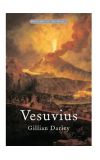
22 Jun 2012 09:59:17
Last erupting in 1944, Vesuvius appears to be sleeping, just a few vaporous wisps hinting at its fearsome reputation. The monitoring equipment strewn over its slopes is, however, a reminder not to be lulled into complacency by the picturesque murals in local cafés: as Darley ominously points out, the people who live in the volcano's shadow are facing "a natural catastrophe on a quite unimaginable scale". That note of alarm aside, Darley sticks to a measured history of the site, exploring its standing as a metaphor for lust, revolution and supernatural forces. Pliny the elder might have been the first star victim to succumb to Vesuvius – he died while trying to escape from the eruption that destroyed Pompeii – but the cast of those entranced by the volcano includes Goethe, Mozart and Freud. Yet it is Sir William Hamilton, best remembered as a cuckold today, whose Vesuvian obsession stands out amid all the raging passion. In his final report on the volcano he quoted Seneca: "We see what we are permitted to see and reason as best we can."

